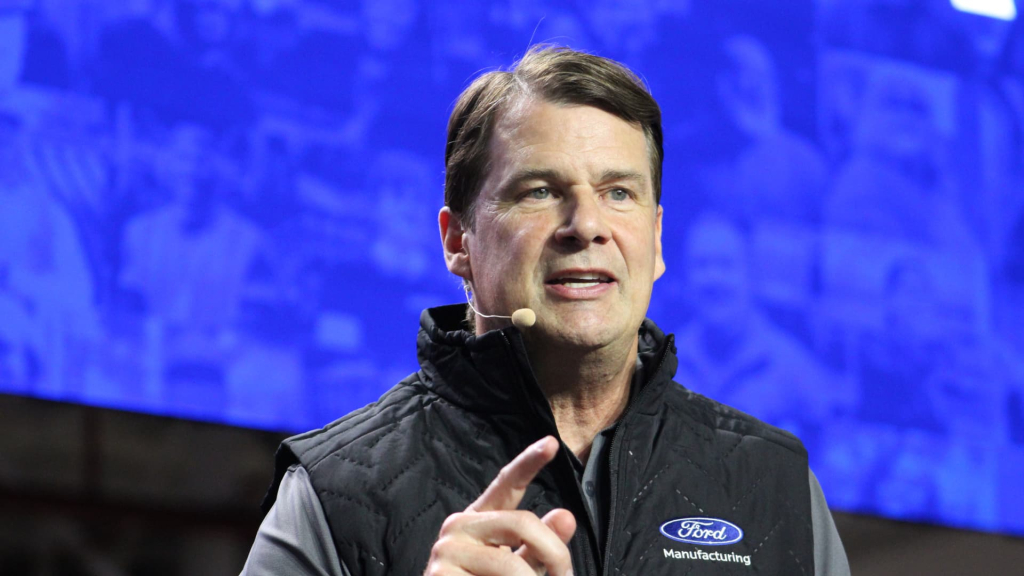LOUISVILLE, Kentucky – President Donald Trump’s recent decision to alleviate some automotive parts tariffs has been praised by Ford Motor CEO Jim Farley, who asserts that further modifications are required to bolster automakers and enhance the U.S. auto sector.
Trump announced the new initiatives through an executive order on Tuesday, which includes reimbursement for automakers on certain U.S. parts and mitigates the cumulative effect of tariffs in the automotive industry.
This move follows urgent requests from the automotive sector for relief amid ongoing regulatory uncertainties linked to Trump’s tariffs, which encompass a 25% tax on imported vehicles entering the U.S. and a projected 25% on auto parts slated for implementation by May 3.
During the launch event for the 2025 Ford Expedition at the Kentucky Truck Plant, Farley commented, “The changes this week on tariff plans will help ease the impact on tariffs for automakers, suppliers, and consumers, but … we need to continue to work closely with the administration on a comprehensive set of policies to support our shared vision of a healthy and growing auto industry, and we are not there yet.”
Farley emphasized the importance of U.S. policies that not only foster exports but also acknowledge companies like Ford for their production efforts within America.
“So many of the vehicles we build here are exported around the globe. Shouldn’t we get credit for that?” he questioned. “Those are American jobs, and we have to keep working on affordable parts to ensure that those supply chains promote domestic growth and affordable vehicles in our country.”
As the largest vehicle producer in the U.S., Ford claims to be a net exporter of both parts and vehicles in terms of total value, as well as being close to a net exporter on a per-vehicle basis. A net exporter status signifies that a company exports more than it imports.
Farley also outlined several hypothetical scenarios illustrating the potential consequences for the U.S. auto industry if competitors mirrored Ford’s manufacturing business model. He projected that such alignment could generate an additional 4 million vehicles annually, create 15 new manufacturing plants, and provide over 500,000 new manufacturing jobs nationwide.
“Imagine if the companies that import all the vehicles in the U.S. treated American manufacturing like Ford,” he noted, even as his company includes substantial imports of vehicles and parts from Mexico, Canada, and China.
While the 25% tariff on imported vehicles will remain intact, the newly introduced measures aim to lower the cumulative tariff rates that resulted from additional tariffs, such as the extra 25% on steel and aluminum, that have compounded over time.
Under the new order, the extra 25% tariffs on auto parts scheduled to begin by May 3 will still be implemented; however, vehicles assembled in the U.S. will qualify for partial reimbursements on those tariffs for a period of two years.


























